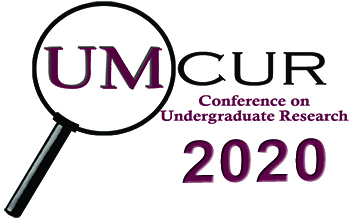Project Type
Presentation
Faculty Mentor’s Full Name
Kathleen Kane
Faculty Mentor’s Department
English Department
Abstract / Artist's Statement
Although she is often touted as the author of “boring chick lit,” Jane Austen remains a literary giant who wrote six novels that are all designated as great classics. While each of her books, and characters, earned its place as a great classic with its own merits, Austen’s novel Emma has an impact that reaches well beyond the canons of classic literature. In this novel, Austen introduced a new concept: the unreliable narrator. By using an unreliable narrator, Austen trusted her readers’ ability to think critically and figure out the truth using context aside from the narrator’s perspective. In addition to this innovation, Austen also used free indirect discourse to create a new kind of storytelling in Emma, influencing fiction in a way that spans genres and time. Through research on the technical and stylistic aspects of her writing, I am exploring the impact of Austen’s Emma on the modern novel. I will specifically examine Austen’s use of free indirect discourse and the influence of Emma on books spanning time and genre, including Agatha Christie’s The Murder of Roger Ackroyd, F. Scott Fitzgerald’s The Great Gatsby, and James Joyce’s The Portrait of the Artist as a Young Man. Through my research, I have found parallels between these novels and Austen’s essential work perfecting free indirect discourse. My focus will be exploring Austen’s new brand of an unreliable narrator, specifically examining how it changed the nature of narration and established a phenomenon that would help define the modern novel.
Category
Humanities
Full essay from presentation
Jane Austen's Influence on the Modern Novel
Although she is often touted as the author of “boring chick lit,” Jane Austen remains a literary giant who wrote six novels that are all designated as great classics. While each of her books, and characters, earned its place as a great classic with its own merits, Austen’s novel Emma has an impact that reaches well beyond the canons of classic literature. In this novel, Austen introduced a new concept: the unreliable narrator. By using an unreliable narrator, Austen trusted her readers’ ability to think critically and figure out the truth using context aside from the narrator’s perspective. In addition to this innovation, Austen also used free indirect discourse to create a new kind of storytelling in Emma, influencing fiction in a way that spans genres and time. Through research on the technical and stylistic aspects of her writing, I am exploring the impact of Austen’s Emma on the modern novel. I will specifically examine Austen’s use of free indirect discourse and the influence of Emma on books spanning time and genre, including Agatha Christie’s The Murder of Roger Ackroyd, F. Scott Fitzgerald’s The Great Gatsby, and James Joyce’s The Portrait of the Artist as a Young Man. Through my research, I have found parallels between these novels and Austen’s essential work perfecting free indirect discourse. My focus will be exploring Austen’s new brand of an unreliable narrator, specifically examining how it changed the nature of narration and established a phenomenon that would help define the modern novel.
